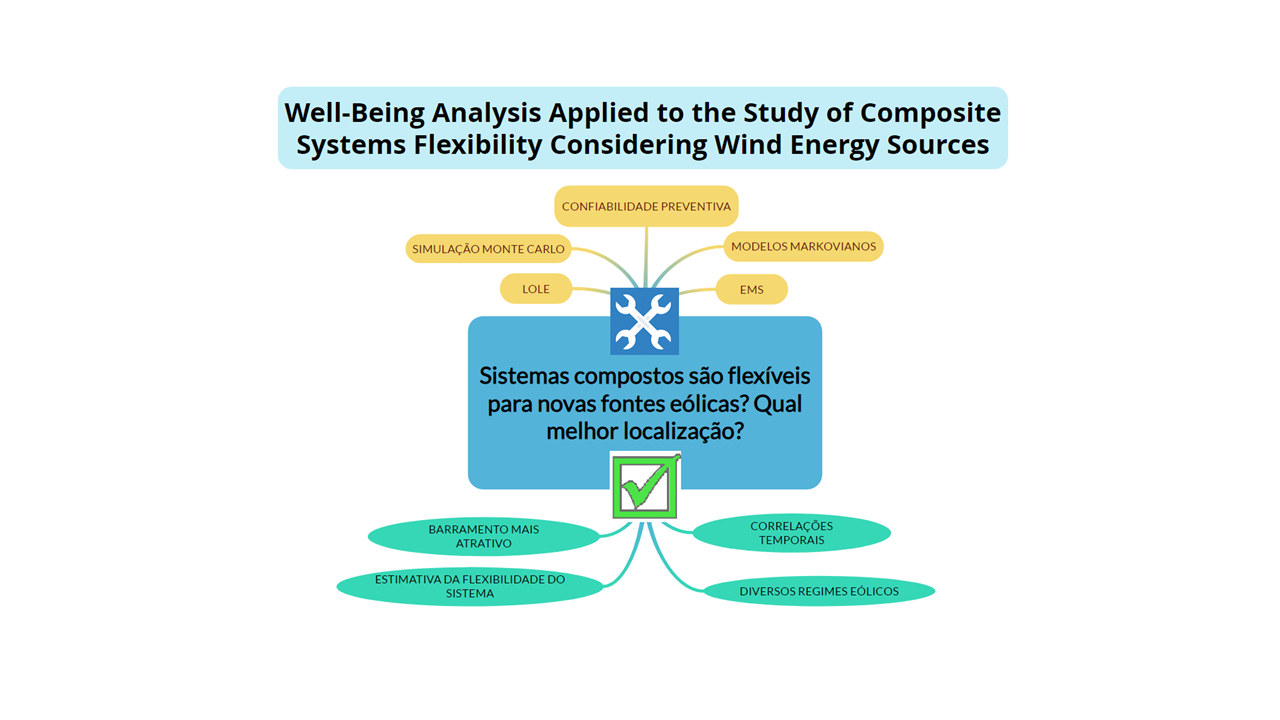Well-Being Analysis Applied to the Study of Composite Systems Flexibility Considering Wind Energy Sources
Keywords:
transmission system flexibility, well-being analysis, wind sources, composite reliabilityAbstract
This paper presents a methodology to evaluate, via well-being analysis, the flexibility of composite electrical systems, considering wind energy sources. By adding wind farms to different system bars, it is possible to assess which configuration provides the best adequacy and safety level for the system. The evaluation is based on probabilistic indices of Loss of Load Expectation (LOLE) and Expected Marginal State (EMS). Such indices are obtained by well-being analysis, combining deterministic criteria with probabilistic methods. Non-Sequential Monte Carlo Simulation is used to consider the probabilistic and intermittent characteristics of wind sources. The methodology is applied to the IEEE-RTS test system.
Downloads


